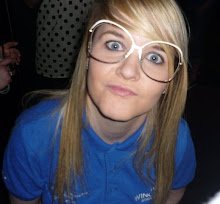It was the 89th minute of an important University cup match. I’d shot off down the wing with the ball at my feet and neatly chipped it to our captain, Natasha, who had then lobbed it past their central defender, leaving only the keeper to beat. As she struck a clean shot veering for the top left hand corner of the net she cried out in pain and I heard a gruesome snap. When I looked round I saw that she’d fallen to the floor, and I knew from her screams that she was in some agony. The paramedics were called and we all waited with bated breath. Looking at each other I could tell we were all thinking the same thing; this was our captain, and instead of looking up to her we were now looking down, which could only mean bad news for us. The funny thing was, she’d scored.
Four months on and I’m sat opposite my captain Natasha Brown, in the hopes of finding out a little more about her experiences playing the beautiful game so far, and to relive the day Natasha would face the cruel realisation that her footballing career was to be put on hold due to her Anterior Cruciate Ligament damage (snapping her knee ligament, to us simple folk).
“My personal passion is the enjoyment and satisfaction of taking part, that’s what it’s all about for me.”
“I’ve always been interested in football, I remember playing at school all the time” she smiles, “I played every time we had a break. My teacher recognised this and became my coach; he even bought me an England shirt which I still have today!” She flashes a cheeky grin as she recalls her fond childhood memories of the game, and how from such an early age she knew she was destined for a footballing career.
“My personal passion is the enjoyment and satisfaction of taking part, that’s what it’s all about for me. And the winning, of course, I can’t help being a little competitive’ she laughs at her own understatement.
Natasha enjoys reliving her childhood, and I’m eager to find out where her talent took her up until this point.
 “I went on Oxford United football camps and some England camps and played football for as long as I could. Then I played for my team at primary school and by secondary school I’d played a few games for my local team Wantage F.C. They played me upfront and that’s where I’ve continued to play since then” By the time Natasha was at secondary school she had already been elected as Captain for her team, a position which she took very seriously,
“I went on Oxford United football camps and some England camps and played football for as long as I could. Then I played for my team at primary school and by secondary school I’d played a few games for my local team Wantage F.C. They played me upfront and that’s where I’ve continued to play since then” By the time Natasha was at secondary school she had already been elected as Captain for her team, a position which she took very seriously, “To be elected as captain was an honour; it meant that my teammates must have had the faith in me to lead the team in a successful way. They must respect me as their friend and captain and trust that I’d do well for the team.”
“...it finally dawned on me that going under the knife was the only option I had.”
After reliving fond memories of her footballing career so far, I felt a pang of guilt to have to move onto the present day and the injury she had suffered to her knee.
“I was desperate to try anything other than have the operation, it was the last resort for me, but my ligament was shot and no amounts of strengthening exercises were working, and so it finally dawned on me that going under the knife was the only option I had. I was absolutely gutted, and it’s so frustrating to be stuck on the sidelines knowing that I can’t get back out there for at least 9 months, and even then I’m not sure if my playing days will ever be the same.”
I can hear her stifling her last words as a tear forms in the corner of her eye, and it is at that point I realise just how important this means to her. For Natasha, this wasn’t something she did every Sunday in the park for a bit of exercise, this was her life, and she had no way of telling what was around the corner. I wanted to know where she saw herself in nine months time where, potentially, she could be back on the pitch.

“It’s a goal, no pun intended, that I want to achieve, but obviously I’m not sure how realistic it is. I don’t know how capable I will be and I’ll probably be reluctant to tackle opponents at first. I need to make sure I’m prepared both physically and mentally before I step back out on the pitch, and that’s where the professionals come in. One thing that’s for certain is that I won’t give up, football is my passion, it drives me every day, and if worse comes to worse and I can’t play, I’ll just be the next Hope Powell!”
Natasha’s footballing career goes way beyond my own, but I couldn’t begin to fathom how she must be feeling after experiencing this career crushing injury. I care about her as my captain and also my friend and I feel gutted for her to be stood on the sidelines itching to get back out there. If anything though, this experience has given me a new found respect for her; the way she has handled her injury and the attitude she has shown reminds me exactly why she was elected to lead our team, and although she won’t play again for the University team again, she is, and will continue to be, as tremendous an asset off the pitch as she was on it.














